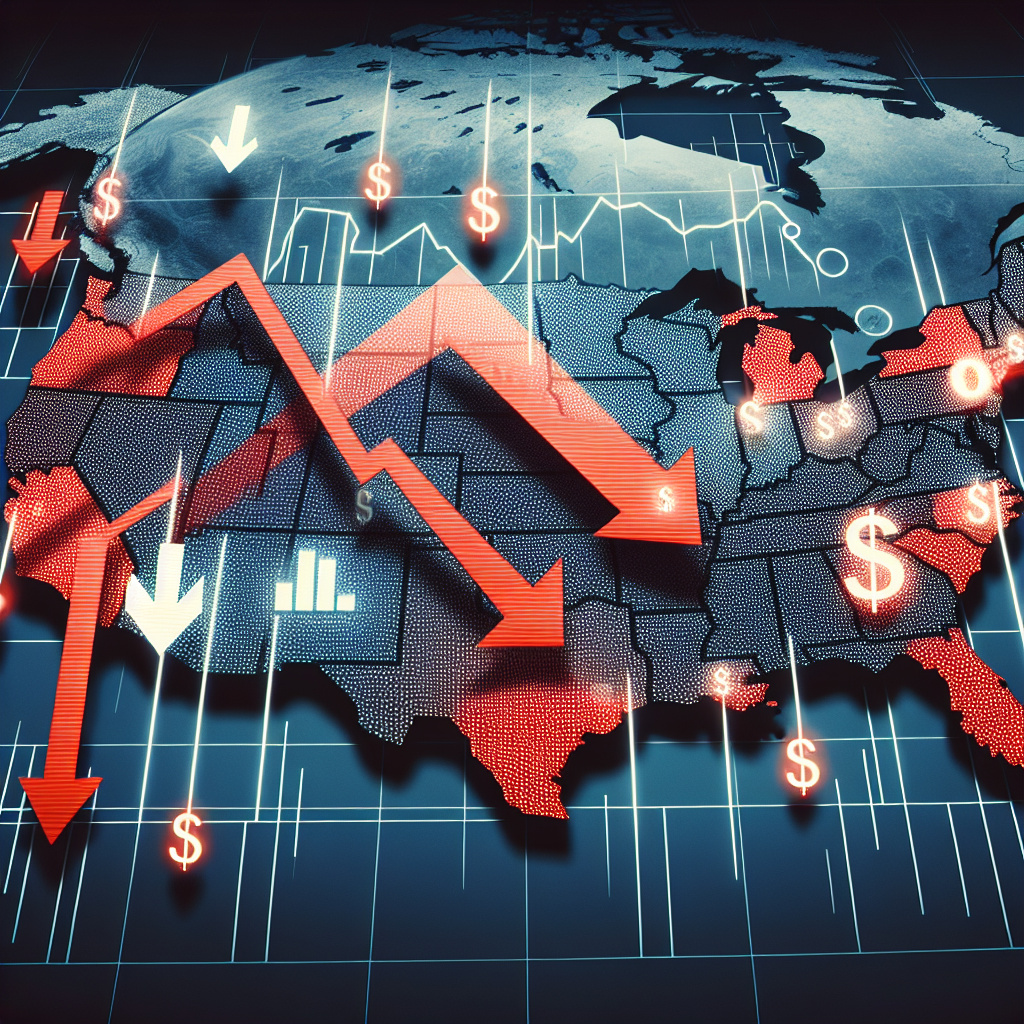-
Table of Contents
- Alert: Political Climate Making These States and Cities Uninvestable
- Understanding the Political Climate
- Case Studies: States and Cities in Focus
- California: The Golden State Losing Its Shine
- New York: The Empire State’s Economic Struggles
- Illinois: The Land of Fiscal Woes
- Impact on Real Estate Investment
- Investor Strategies in Unstable Political Climates
- Conclusion: Navigating the Political Landscape
Alert: Political Climate Making These States and Cities Uninvestable

In recent years, the political climate in certain states and cities across the United States has become increasingly volatile, leading to significant economic repercussions. Investors, both domestic and international, are growing wary of putting their money into regions where political instability, policy unpredictability, and social unrest are prevalent. This article delves into the factors making these areas uninvestable, supported by relevant examples, case studies, and statistics.
Understanding the Political Climate
The political climate of a region encompasses the prevailing political attitudes, policies, and governance styles that influence its economic environment. When the political climate is unstable, it can lead to:
- Unpredictable regulatory changes
- Increased taxation
- Social unrest and protests
- Corruption and inefficiency
- Reduced investor confidence
These factors can deter investment, stifle economic growth, and ultimately make a region uninvestable.
Case Studies: States and Cities in Focus
California: The Golden State Losing Its Shine
California, once a beacon of economic opportunity, is now facing significant challenges that are making it less attractive to investors. Key issues include:
- High Taxes: California has some of the highest state taxes in the country, including a top marginal income tax rate of 13.3%.
- Regulatory Burden: The state’s stringent regulations, particularly in the tech and environmental sectors, have increased operational costs for businesses.
- Homelessness and Crime: Major cities like San Francisco and Los Angeles are grappling with rising homelessness and crime rates, which deter both tourists and investors.
According to a 2021 survey by Chief Executive Magazine, California ranked 50th in the nation for business friendliness. Companies like Tesla and Oracle have relocated their headquarters to states with more favorable business climates, such as Texas.
New York: The Empire State’s Economic Struggles
New York, particularly New York City, has long been a global financial hub. However, recent political and economic developments have raised concerns:
- High Cost of Living: The cost of living in New York City is among the highest in the world, making it difficult for businesses to attract and retain talent.
- Taxation: New York has one of the highest combined state and local tax burdens in the United States.
- Political Instability: Frequent changes in leadership and policy direction have created an unpredictable business environment.
The COVID-19 pandemic exacerbated these issues, with many businesses closing permanently and residents moving to less expensive areas. A report by the Manhattan Institute found that New York City lost over 300,000 residents between 2020 and 2021, further straining the local economy.
Illinois: The Land of Fiscal Woes
Illinois, particularly Chicago, is another state facing significant economic challenges due to its political climate:
- Pension Crisis: Illinois has one of the worst-funded pension systems in the country, with an unfunded liability of over $140 billion.
- High Taxes: The state’s high property and income taxes are driving residents and businesses away.
- Corruption: Illinois has a long history of political corruption, which undermines investor confidence.
In 2020, Caterpillar Inc., a major employer in Illinois, announced plans to move its headquarters to Texas, citing a more favorable business environment. This move is indicative of a broader trend of businesses fleeing the state.
Impact on Real Estate Investment
The political climate in these states and cities has also had a profound impact on the real estate market. Investors are increasingly cautious about putting money into regions where political instability and economic challenges are prevalent. Key concerns include:
- Property Values: Political instability can lead to declining property values, making real estate a less attractive investment.
- Rental Income: High taxes and regulatory burdens can reduce rental income and increase vacancy rates.
- Development Costs: Stringent regulations and permitting processes can increase development costs and delay projects.
For example, in San Francisco, the combination of high taxes, regulatory hurdles, and social issues has led to a slowdown in real estate development. According to a report by the Urban Land Institute, San Francisco’s real estate market is now considered one of the least attractive for investment in the United States.
Investor Strategies in Unstable Political Climates
Given the challenges posed by unstable political climates, investors need to adopt strategies to mitigate risks and protect their investments. Some effective strategies include:
- Diversification: Diversifying investments across different regions and asset classes can help reduce exposure to political risk.
- Due Diligence: Conducting thorough due diligence on the political and economic environment of a region before investing is crucial.
- Engaging Local Experts: Partnering with local experts who understand the political landscape can provide valuable insights and help navigate challenges.
- Monitoring Political Developments: Keeping a close eye on political developments and being prepared to adjust investment strategies accordingly is essential.
For instance, many real estate investors are now looking to secondary markets in states with more stable political climates, such as Texas, Florida, and North Carolina. These states offer more favorable business environments, lower taxes, and less regulatory burden, making them attractive alternatives to traditionally popular markets like California and New York.
Conclusion: Navigating the Political Landscape
The political climate in certain states and cities across the United States is making them increasingly uninvestable. High taxes, regulatory burdens, social unrest, and political instability are driving businesses and investors away from regions like California, New York, and Illinois. As a result, these areas are experiencing economic challenges that further exacerbate their uninvestability.
Investors must adopt strategies to mitigate risks and protect their investments in such volatile environments. Diversification, due diligence, engaging local experts, and monitoring political developments are essential steps to navigate the complex political landscape.
Ultimately, understanding the political climate and its impact on investment is crucial for making informed decisions. By staying informed and proactive, investors can identify opportunities in more stable regions and avoid the pitfalls of investing in areas with unfavorable political climates.
In summary, the political climate is a critical factor that can significantly influence the investability of states and cities. As the landscape continues to evolve, investors must remain vigilant and adaptable to protect their interests and capitalize on emerging opportunities.








